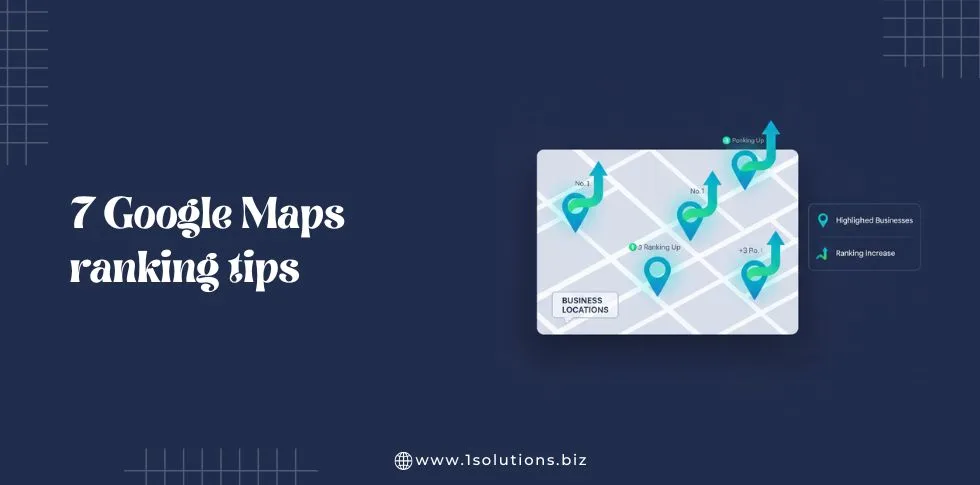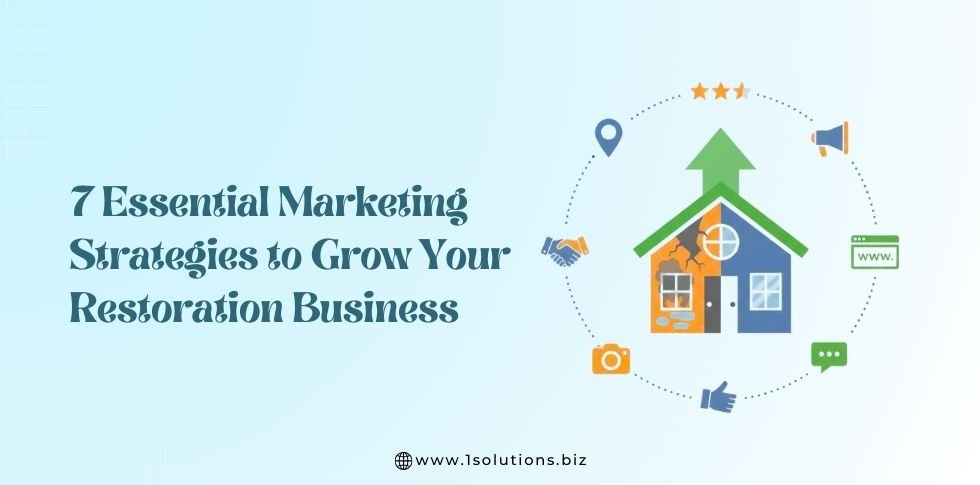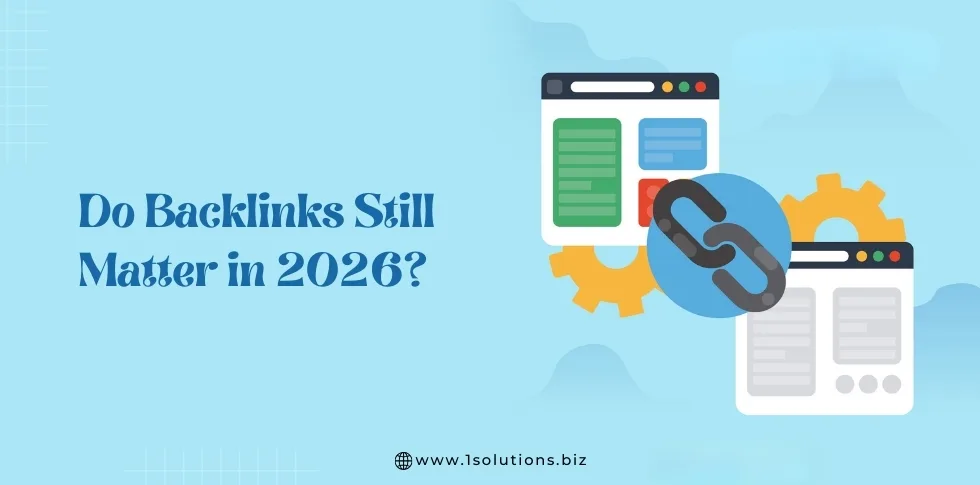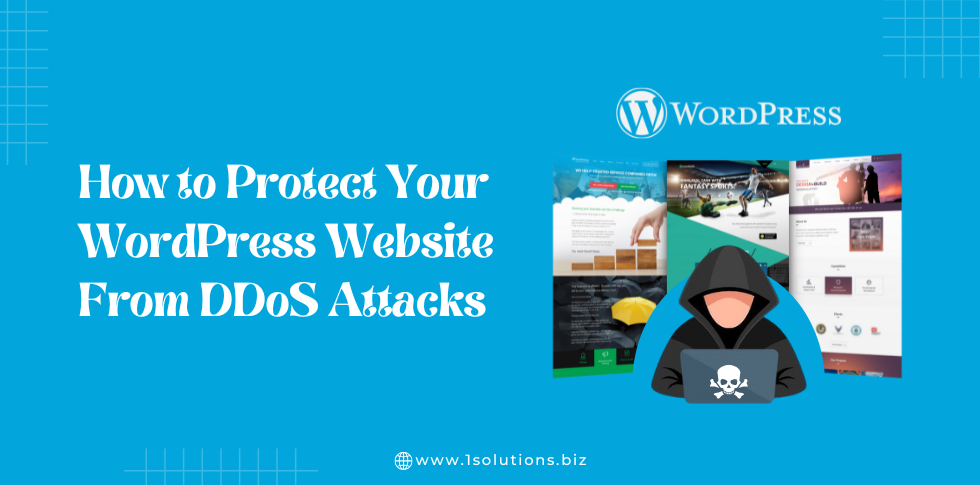Introduction to Backlinks and their Importance in SEO
Backlinks are the backbone of a successful SEO strategy. They signal to search engines that your website is a credible source of information, boosting your visibility in search results.
As businesses vie for attention online, understanding how to build backlinks naturally becomes more crucial than ever. But what exactly are natural backlinks, and how can you cultivate them without resorting to shady tactics?
Whether you’re running a blog or managing an e-commerce site, mastering link building services can elevate your digital presence significantly. Let’s dive into the essentials of creating genuine connections that enhance your site’s authority and drive organic traffic!
Understanding Natural Backlinks and why do you need them?
1. Increased website visibility in search engine results
Visibility is the name of the game in digital marketing. When you secure natural backlinks, your website climbs higher in search engine rankings. This means that users are more likely to discover you when they search for relevant topics.
Search engines like Google value backlinks as a sign of credibility. The more quality sites link to yours, the more authoritative you appear. As a result, your content gets prioritized over others.
Think about it: when was the last time you clicked past the first page of search results? Most people don’t bother. By improving your ranking through natural backlinks, you’re putting yourself front and center where potential visitors can easily find you.
Ultimately, increased visibility translates directly into traffic growth. More eyes on your site mean greater opportunities for engagement and conversion down the line.
2. Improved domain authority and credibility
Domain authority is a crucial metric in the world of SEO. It reflects how well your website can rank on search engines. Natural backlinks play a significant role in boosting this authority.
When reputable sites link to yours, it signals to search engines that you’re a trusted source. This trust builds your credibility over time, making it easier for you to climb the rankings.
As your domain authority improves, so does your visibility online. More users are likely to click on links from higher-authority domains, leading them back to you.
This cycle creates a robust reputation within your niche. With enhanced credibility comes increased opportunities for partnerships and collaborations with other brands or influencers.
Your content becomes more valuable when recognized by peers in your field. Ultimately, investing effort into acquiring natural backlinks pays off significantly for long-term growth and success.
3. Enhanced user trust and engagement
When users encounter links from reputable sites pointing to your content, it creates a sense of trust. They recognize that others value your information. This validation encourages them to explore further.
Natural backlinks serve as endorsements in the digital landscape. The more trustworthy the referring site, the stronger the impact on user perception. It’s like receiving a nod of approval from a respected figure in your industry.
As trust builds, engagement follows naturally. Users are more likely to spend time on your site and interact with your content when they feel confident about its reliability.
This increased interaction doesn’t just improve metrics; it fosters community and loyalty among visitors. When users know they can count on you for quality information, they’re more inclined to return and share their experiences with others.
Establishing this rapport is essential for long-term success online, making natural backlinks an invaluable asset for any website owner.
4. Boosted organic traffic and leads
Boosted organic traffic and leads can significantly transform your online presence. When your website gains natural backlinks, it signals to search engines that your content is valuable. As a result, you might notice an uptick in visitors coming from various sources.
These backlinks act as pathways for potential customers. The more quality links you have, the more likely users will find their way to your site. This increased traffic isn’t just about numbers; it’s about attracting the right audience who are genuinely interested in what you offer.
Moreover, with enhanced visibility comes greater chances of converting visitors into leads or customers. If people discover your site through trustworthy references, they are more inclined to engage with your services or products. Natural backlinks create authentic connections between sites and help establish a network of influence.
Also Read- How to optimize your website content for SEO?
Top Strategies for Building Organic Backlinks:
1. Creating High-Quality Content-
Creating high-quality content is the backbone of any successful link-building strategy. It’s not just about churning out articles; it’s about crafting value-driven pieces that resonate with your audience.
Engaging, informative content attracts attention and encourages others to link back to you. When users find something beneficial, they naturally want to share it. This sharing could lead to organic backlinks from reputable sites.
Focus on originality and depth in your writing. Utilize data, case studies, or expert opinions to enhance credibility. Well-researched content stands out in a crowded digital landscape. Remember that visual elements like infographics or videos can also elevate your narrative. They make complex information more digestible and appealing while increasing the chances of earning links.
Lastly, ensure your content aligns with user intent. Understanding what your audience seeks lays the groundwork for creating relevant material that drives engagement and backlinks alike.
2. Guest Blogging and Collaborating with Influencers-
Guest blogging is a powerful strategy for building natural backlinks. By contributing valuable content to reputable websites, you not only gain exposure but also earn links back to your site. This creates a win-win situation; the host site receives fresh perspectives while you enhance your credibility.
Collaborating with influencers can amplify this effect. When an influencer shares your guest post or mentions your brand, their followers are likely to engage and explore further. Their endorsement carries weight and can drive significant traffic.
Focus on finding influencers who align with your niche and values. Reach out with tailored pitches that highlight mutual benefits. The more authentic the collaboration, the better the results will be.
Remember, it’s essential that the content remains high-quality and relevant. Quality over quantity should always be your mantra when seeking these partnerships for effective link building services.
3. Utilizing Social Media Platforms-
Social media platforms are a goldmine for link building opportunities. They allow your content to reach a broader audience, increasing the chances of gaining natural backlinks.
Sharing valuable posts on sites like Facebook, Twitter, and LinkedIn encourages engagement. When users find your content helpful or entertaining, they’re more likely to share it within their own networks.
Engaging with influencers is another effective strategy. By connecting with those who have established audiences, you can boost visibility for your brand and attract potential backlinks from their followers.
Don’t forget to join relevant groups and communities related to your niche. Participating in discussions not only positions you as an authority but also opens doors for sharing links organically when appropriate.
Lastly, use eye-catching graphics or videos in your posts. Visual content tends to perform better on social media, drawing more eyes—and potentially securing those coveted backlinks.
4. Participating in Online Communities and Forums-
Engaging in online communities and forums can be a goldmine for natural backlink opportunities. These platforms allow you to connect with like-minded individuals who share your interests, making it easier to contribute valuable insights.
When participating, focus on providing thoughtful responses rather than just promoting your website. This builds trust within the community and establishes you as an authority on relevant topics.
Look for niche-specific forums where your target audience hangs out. Answer questions, offer solutions, and include links back to your content when appropriate—ensuring they enhance the conversation rather than feel like blatant self-promotion.As you build rapport in these spaces, fellow members may naturally link back to your resources.Consistency is key; regular participation keeps you visible and helps cultivate relationships that could lead to more backlinks over time.
5. Leveraging Local Citations–
Local citations play a crucial role in building backlinks, especially for businesses targeting specific geographic areas. These are mentions of your business name, address, and phone number across various online platforms.
When you leverage local citations effectively, it boosts your visibility in search results. It’s an easy way to gain credibility while improving local SEO rankings. Start by listing your business on popular directories like Google My Business, Yelp, and Bing Places. Ensure that all information is consistent across these platforms to avoid confusion among potential customers.
Additionally, look for niche-specific directories related to your industry or location. Getting featured there can help attract quality traffic and enhance trustworthiness.
Engaging with local blogs or news sites can also generate valuable backlinks through features or articles highlighting community services or events you participate in.
6. Networking with Other Websites/Businesses
Networking with other websites and businesses can be a game-changer for your link building strategy. Establishing connections within your industry opens up opportunities for collaboration and mutual promotion.
Start by identifying partners who share similar audiences but aren’t competitors. This creates a win-win situation where both parties benefit from increased exposure.
Attend industry events, webinars, or local meetups to build relationships face-to-face. Personal interactions foster trust and often lead to more meaningful partnerships.
Don’t shy away from reaching out via email or social media. A personalized message can spark interest in collaborating on content that links back to each other’s sites.
Consider co-hosting webinars, creating joint resources like eBooks, or engaging in cross-promotions through newsletters. These tactics not only generate backlinks but also enhance credibility in the eyes of search engines.
Also Read- Common Myths About Backlink Building
Tips for Effective Outreach and Building Relationships for Link Building
Effective outreach is a cornerstone of successful link building. Start by researching your target sites thoroughly. Understand their audience and the kind of content they publish.
Personalize your outreach emails to make a genuine connection. Mention specific articles or projects from their site that you appreciate. This shows that you value their work and are not just sending mass emails.
Timing matters, too. Reach out when the recipient is likely to be more receptive, such as after they publish new content.
Offer something valuable in return for links—this could be unique insights, guest posts, or collaboration opportunities. A win-win approach builds trust and fosters long-term relationships.
Follow up if you don’t receive a response at first; sometimes messages get lost in busy inboxes. However, keep it polite and avoid being pushy to maintain goodwill with potential partners in your link building efforts.
Also Read- 7 Basic Tips for On-Page SEO
Common Mistakes to Avoid when Building Natural Backlinks
Building natural backlinks is a crucial part of any successful SEO strategy. Yet, many marketers stumble along the way, making avoidable mistakes that can hinder their efforts. With search engines constantly evolving, it’s essential to stay informed about best practices for link building. Whether you’re a seasoned pro or just starting out, understanding common pitfalls can save you time and resources while boosting your website’s visibility. Let’s explore some key mistakes to watch out for when crafting your backlink strategy and how to sidestep them effectively.
1. Ignoring Quality Over Quantity:
When it comes to backlinks, quality reigns supreme. Many website owners mistakenly believe that acquiring a large number of links will automatically boost their rankings. However, this approach can backfire dramatically.
Links from low-quality sites may have little to no value and could even harm your site’s reputation in the eyes of search engines. Prioritizing high-authority domains ensures you’re associating your content with credible sources.
A few well-placed, relevant links are much more beneficial than dozens of irrelevant ones. Focus on earning backlinks from reputable blogs or industry leaders instead of flooding your profile with generic links.
Engage in meaningful outreach and build genuine relationships within your niche. This strategy not only enhances link quality but also fosters trust among users who recognize valuable content when they see it.
2. Neglecting Link Diversity:
Link diversity is vital for a healthy backlink profile. Relying too heavily on a single type of link can raise red flags with search engines. If all your backlinks come from similar sources, it may appear manipulative.
Varying the types of links you acquire helps paint a more authentic picture of your online presence. Consider incorporating links from blogs, forums, social media platforms, and industry-specific directories. Each source brings unique value to your strategy.
Additionally, think about the relevance of those links. A diverse mix that includes reputable sites within your niche enhances credibility and authority. It also improves chances for organic traffic as different audiences engage with various platforms.
Failing to embrace this variety not only limits potential reach but can also hinder growth in rankings over time. Embracing link diversity fosters resilience against algorithm updates while supporting long-term SEO goals.
3. Overusing Anchor Text Optimization:
Anchor text plays a crucial role in SEO, but over-optimizing it can trigger red flags. A natural approach is essential for maintaining credibility. When every link uses the same keyword-rich anchor text, search engines notice.
Instead of only focusing on exact match keywords, consider variations and branded terms. This adds richness to your backlink profile and makes it appear more organic.
Using generic phrases like “click here” or “read more” can also be beneficial when sprinkled throughout your content. These alternatives not only diversify your anchor text but enhance user experience too.
Balance is key; aim for a mix that fosters trust with both users and search algorithms. Remember, authenticity shines through when you let go of rigid strategies in favor of thoughtful linking practices.
4. Ignoring Link Placement:
Link placement is often overlooked, yet it plays a crucial role in the effectiveness of your backlinks. Simply having links on a page isn’t enough; where they are positioned can significantly influence how search engines view their value.
Links buried at the bottom of lengthy articles may not garner attention or clicks. Instead, consider placing them within the body content where readers naturally engage with relevant information. This enhances visibility and encourages user interaction.
Moreover, context matters. A link embedded in meaningful sentences carries more weight than one thrown in arbitrarily. It provides readers with clear reasons to click through, creating a logical flow that benefits both users and SEO.
Don’t forget about mobile optimization either. Links should be easily accessible on all devices, ensuring an optimal experience for every visitor regardless of screen size or platform.
5. Forgetting About Link Velocity:
Link velocity is a crucial factor that often gets overlooked. This term refers to the speed at which your backlinks are acquired over time.
When you suddenly spike in backlinks, search engines may view it as suspicious activity. A rapid increase can signal manipulative practices rather than organic growth.
On the flip side, an extremely slow pace might indicate a lack of interest or relevance for your content. Striking a balance is essential.
Aim for consistent and gradual link acquisition instead of going all out at once. Building relationships within your niche takes time but pays off significantly.
Monitoring link velocity helps you adjust strategies as needed and keeps search engine algorithms happy. It’s about creating a natural pattern that reflects genuine engagement with your audience and peers in the industry.
6. Disregarding Link Decay:
Link decay is a reality that many site owners overlook. Just because you’ve secured a valuable backlink doesn’t mean it will stand the test of time. Links can break or become irrelevant as websites change, merge, or shut down.
Monitoring your backlinks regularly is vital. A dropped link can seriously impact your SEO strategy and rankings. Tools are available to help you track these changes and assess the health of your backlink profile.
Be proactive about replacing lost links with new ones. Reach out to websites that have cited you before but may no longer have active links pointing back to your content.
Reinforcing existing relationships can open doors for future collaborations, ensuring that you’re not just relying on old connections alone. By staying vigilant about link decay, you’ll keep a robust foundation for your site’s authority and visibility intact over time.
7. Ignoring User Experience:
User experience should never be an afterthought when building natural backlinks. A website that is difficult to navigate, slow to load, or cluttered with ads detracts from the value of any links pointing to it. Users will quickly leave if they encounter frustrations.
When creating content that earns backlinks, focus on providing a seamless journey for your visitors. Ensure your site is mobile-friendly and easy to read. This not only retains visitors but encourages them to share your content organically.
A positive user experience boosts engagement metrics like time spent on site and lowers bounce rates. These factors signal search engines about the quality of your site. So while you aim for those coveted backlinks, remember: a happy visitor is more likely to link back in appreciation.
By addressing these common mistakes head-on, you can create a strong foundation for effective backlinking strategies that stand the test of time.
Also Read- What Are Toxic Backlinks And How To Remove Them?
Measuring Success of Your Backlink Strategy
Measuring the success of your backlink strategy is essential to understand its effectiveness. Start by tracking the number and quality of backlinks you’ve acquired over time. High-quality backlinks from authoritative sites can significantly boost your SEO.
Use tools like Google Analytics to monitor referral traffic coming from these backlinks. This data reveals how well your links are driving visitors to your site.
Additionally, keep an eye on keyword rankings for terms related to your content. If you notice improvements in ranking positions after implementing a link-building campaign, that’s a positive sign.
Don’t forget about domain authority metrics. Tools like Moz or Ahrefs can help assess any increase in domain authority as a result of successful link building efforts.
Lastly, measure engagement metrics such as bounce rate and average session duration for traffic driven by backlinks. Higher engagement usually indicates that you’re attracting the right audience with valuable content.
Also Read- Why You Need A Long-Term SEO Strategy?
Why Natural Backlinks are Vital for Long-Term SEO Success
Natural backlinks play a crucial role in the success of your SEO strategy. They help elevate your website’s authority and improve its visibility in search results. Unlike paid links, which may offer short-term gains, natural backlinks foster genuine relationships within your industry.
These organic endorsements signal to search engines that your content is valuable and trustworthy. As you focus on building high-quality connections, you will notice sustainable growth over time. It’s about creating a solid foundation for your online presence rather than chasing quick wins.
Investing effort into link-building services can further enhance these strategies. A reputable link building company understands the nuances of acquiring quality links without resorting to spammy tactics or violating guidelines.
The journey toward effective backlinking is ongoing but incredibly rewarding. By prioritizing natural methods, you’re setting up not just immediate benefits but also long-term success for your website’s performance in search engine rankings.





























